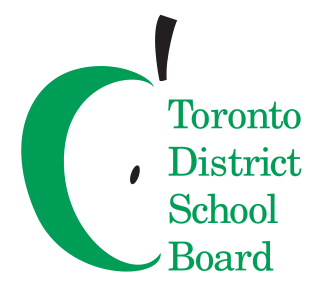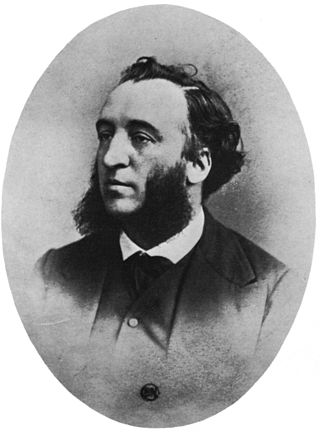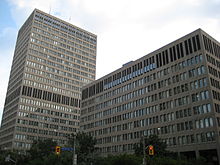
A teacher, also called a schoolteacher or formally an educator, is a person who helps students to acquire knowledge, competence, or virtue, via the practice of teaching.
Education in Thailand is provided mainly by the Thai government through the Ministry of Education from pre-school to senior high school. A free basic education to fifteen years is guaranteed by the Thai constitution. This basic education comprises six years of elementary school and three years of lower secondary school. In addition, three years of pre-school and three years of upper-secondary education is available free of charge, but are non-compulsory.

A student council is an administrative organization of students in different educational institutes ranging from elementary schools to universities and research organizations around the world. These councils exist in most public and private K-12 school systems in different countries. Many universities, both private and public, have a student council as an apex body of all their students' organisations. Student councils often serve to engage students in learning about democracy and leadership, as originally espoused by John Dewey in Democracy and Education (1917).
Linda Laughlin McIntosh is a former politician in Manitoba, Canada. She was a member of the Legislative Assembly of Manitoba from 1990 to 1999, and a cabinet minister for most of this period. Among other awards and recognitions, McIntosh has received both the Queen Elizabeth II Golden Jubilee Medal and the Queen Elizabeth II Diamond Jubilee Medal, for her contributions to Canada.

The Toronto District School Board (TDSB), formerly known as English-language Public District School Board No. 12 prior to 1999, is the English-language public-secular school board for Toronto, Ontario, Canada. The minority public-secular francophone, public-separate anglophone, and public-separate francophone communities of Toronto also have their own publicly funded school boards and schools that operate in the same area, but which are independent of the TDSB. Its headquarters are in the district of North York.
The Ministry of Colleges and Universities is the ministry of the Government of Ontario responsible for administration of laws relating to post-secondary education. This ministry is one of two education ministries, the other being the Ministry of Education. The Ministry's offices are in downtown Toronto. The current minister is Nolan Quinn.

Student voice is the individual and collective perspective and actions of students within the context of learning and education. It is identified in schools as both a metaphorical practice and as a pragmatic concern. Tech educator Dennis Harper noted that student voice gives students "the ability to influence learning to include policies, programs, contexts and principles."

The Jules Ferry Laws are a set of French laws which established free education in 1881, then mandatory and laic (secular) education in 1882. Jules Ferry, a lawyer holding the office of Minister of Public Instruction in the 1880s, is widely credited for creating the modern Republican school. The dual system of state and church schools that were largely staffed by religious officials was replaced by state schools and lay school teachers. The educational reforms enacted by Jules Ferry are often attributed to a broader anti-clerical campaign in France.
Education in the Philippines is compulsory at the basic education level, composed of kindergarten, elementary school, junior high school, and senior high school. The educational system is managed by three government agencies by level of education: the Department of Education (DepEd) for basic education; the Commission on Higher Education (CHED) for higher education; and the Technical Education and Skills Development Authority (TESDA) for technical and vocational education. Public education is funded by the national government.
Education in Ontario comprises public and private primary schools, secondary schools and post-secondary institutions. Publicly funded elementary and secondary schools are administered by the Ontario Ministry of Education, while colleges and universities are administered by the Ontario Ministry of Training, Colleges and Universities. The current respective Ministers for each are Jill Dunlop and Ross Romano. The province's public education system is primarily funded by the Government of Ontario, with education in Canada falling almost entirely under provincial jurisdiction. There is no federal government department or agency involved in the formation or analysis of policy regarding education for most Canadians. Schools for Indigenous people in Canada with Indian status are the only schools that are funded federally, and although the schools receive more money per individual student than certain provinces, the amount also includes the operation and maintenance of school facilities, instructional services, students supports and staff. Most provincial allocations per students do not include the maintenance and operation of buildings, as most provincial governments offer additional grants.

Higher education in Ontario includes postsecondary education and skills training regulated by the Ministry of Colleges and Universities and provided by universities, colleges of applied arts and technology, and private career colleges. The current minister is Jill Dunlop who was appointed in June 2021. The ministry administers laws covering 22 public universities, 24 public colleges, 17 privately funded religious universities, and over 500 private career colleges. 18 of the top 50 research universities in Canada are in Ontario.

Education in Antigua and Barbuda is compulsory and free for children between the ages of 5 and 16 years. The system is modeled on the British educational system. The current Minister of Education, Sport & Creative Industries is Daryll Sylvester Matthew.

The Idaho Department of Education is an executive agency of the Idaho state education system. The department is responsible for public elementary and secondary school matters as provided by Title 33, Idaho Code, or as determined by the Idaho State Board of Education. It is headquartered in the state capital, Boise, Idaho.
A Sex education curriculum is a sex education program encompassing the methods, materials, and assessments exercised to inform individuals of the issues relating to human sexuality, including human sexual anatomy, sexual reproduction, sexual intercourse, reproductive health, emotional relations, reproductive rights and responsibilities, abstinence, birth control, and other aspects of human sexual behavior.
The Department for Education of South Australia is a state government department delivering school education throughout the state. Education in Australia at school level is managed by each state, though the Commonwealth government makes a significant contribution. The Department was established through the Education Act of 1875 which allowed for the establishment of public schools and contained provisions for compulsory schooling of children aged between 7 and 13. As the state grew quickly into the 20th Century the Education Department expanded across the very large rural areas of the state. After World War II, rising birth rates, large scale immigration and increasing demand for secondary education led to very rapid growth in the Department. The number of private schools grew in this period and with increasing State aid provided growing competition for the State education sector. In the post-war period several of large reviews of education have taken place: in particular the Karmel and Keeves reviews. In 2017, there were 514 Schools and approximately 172,000 students within the Department.
Manitoba Advanced Education and Training is the department of the Government of Manitoba responsible for supporting adult learning, post-secondary education, and vocational training in Manitoba.
New York State's Dignity for All Students Act, also known as The Dignity Act, and most commonly referred to by its acronym, DASA, is legislation in the U.S. state of New York, established to provide a school environment free of discrimination and harassment. It was signed into law by former Governor David Paterson on September 13, 2010 but was not implemented in school districts statewide until July 1, 2012. This act was first introduced to the New York State Senate in 1999 by Senator Thomas Duane. "The Act to support student’s mental health at school and during school related events. It enforces a strict zero-tolerance policy for student discrimination, harassment, intimidation, taunting and bullying.

The Ministry of Education, Vocational Training and Sports (MEFPD) is the department of the Government of Spain responsible for proposing and carrying out the government policy on education and vocational training. This covers all the teachings of the education system —except university education—, including physical education, through the National Sports Council. Likewise, it is also the responsibility of this Department the promotion of cooperation actions and, in coordination with the Ministry of Foreign Affairs, the promotion of international relations in the field of non-university education.

Educational management refers to the administration of the education system in which a group combines human and material resources to supervise, plan, strategise, and implement structures to execute an education system. Education is the equipping of knowledge, skills, values, beliefs, habits, and attitudes with learning experiences. The education system is an ecosystem of professionals in educational institutions, such as government ministries, unions, statutory boards, agencies, and schools. The education system consists of political heads, principals, teaching staff, non-teaching staff, administrative personnel and other educational professionals working together to enrich and enhance. At all levels of the educational ecosystem, management is required; management involves the planning, organising, implementation, review, evaluation, and integration of an institution. Research in educational management should explore the dynamic interplay among educational leaders, their followers, and the broader community to enhance the quality of teaching and learning outcomes.
The federal government of the United States has limited authority to act on education, and education policy serves to support the education systems of state and local governments through funding and regulation of elementary, secondary, and post-secondary education. The Department of Education serves as the primary government organization responsible for enacting federal education policy in the United States.






































